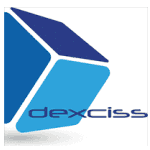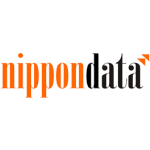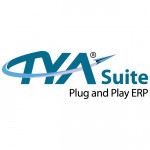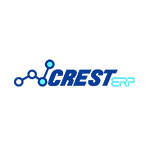List of 10 Best ERP Software for Your Business
Showing 1 - 10 of 722 productsExperience streamlined, efficient financial management with Oracle Cloud ERP. Designed for businesses of all sizes, this powerful software offers a seamless solution for all your accounting and procurement needs. Say goodbye to complex and outdated s...Read Oracle Cloud ERP Reviews
Microsoft Dynamics 365 is a business management solution designed to streamline and enhance various aspects of a companys operations. From sales and marketing, to finance and supply chain management, Dynamics 365 offers a seamless and integrated appr...Read Microsoft Dynamics 365 Reviews
With 800+ Support Centers and 9 Lac+ Users, Marg ERP 9+ ensure that SMEs including retail, distribution and manufacturing business attains its target on time with an integrated, centralized control system that enables them to manage their entire down...Read Marg ERP 9+ Reviews
ORION Enterprise is a unique endeavor asset arranging arrangement that permits associations to easily coordinate divergent groups, capacities, cycles, and frameworks. 3i Infotech is a worldwide Information Technology organization focused on Empowerin...Read ORION ERP Reviews
Used by more than 5000 companies across the world. ERPNext is the worlds most advanced 100% opensource ERP Software. It is an open alternative to SAP, MS Dynamics and other market leaders at a relatively lower cost of ownership...Read ERPNext Reviews
GoodBooks ERP, which has been trusted by over 2500 clients for three decades, transforms business management with customizable modules that ensure seamless operations. From production and inventory management to sales, finance, and CRM, our user-frie...Read Goodbooks ERP Reviews
NEWTON ERP is an affordable, integrated business management solution that offers a comprehensive assortment of capabilities needed to run your business in a most effective fashion...Read Newton ERP Reviews
TYASuite Plug and Play cloud ERP software is a full-featured business management solution that offers you everything you need for your daily business operations...Read TYASuite Cloud ERP Reviews
Focus X ERP software by Focus Softnet is a business management solution that optimizes enterprise resource planning. It integrates finance, inventory, sales, procurement, HR, and more...Read Focus X Reviews
CREST is a fully integrated ERP product for Trading, Manufacturing & Service organizations to effectively manage their business operations...Read CREST ERP Reviews
Ultimate Buyer’s Guide to ERP Software in India
Choosing the right ERP software can bring a transformation to your business where finance, inventory, HR, sales, and supply chain integrate into one single system. And with so many ERP solutions being available, choosing the best software for a business in India is a great question.
Here's a data-driven comparison of top solutions covering their features, benefits, pricing, and industry suitability.
What Is ERP Software?
Enterprise Resource Planning (ERP) software helps businesses streamline operations, automate workflows, and centralize data across multiple departments.
Key Functions of ERP System
-
Finance Management – Automates accounting, payroll, budgeting, and compliance.
-
Supply Chain Management (SCM) – Tracks inventory, procurement, and logistics.
-
Customer Relationship Management (CRM) – CRM Enhances customer engagement and sales tracking.
-
Manufacturing & Production – Helps in demand forecasting, production planning, and quality control.
-
Human Resource Management (HRM) – Automates payroll, attendance, and employee records.
What Are the Key Features to Look for in ERP Software?
It is essential for business leaders to understand the features that Enterprise Resource Planning software provides that their organization can make the most out of.
The following are some important features to consider:
• Integration:
The integration feature of the ERP system makes this solution stand apart from other software solutions in the market. All the other software vendors claim that their system seamlessly integrates with third-party applications.
The enterprise resource planning software is a solution designed to work together. It will seamlessly integrate with other systems to streamline the entire business operations.
This software solution will integrate all the advanced tools to gather, store, and evaluate world business data to make strategic data-driven business decisions. The cloud based system will store the data of the entire organization to increase team collaboration and transparency.
• Automation:
Automation is one of the best feature of ERP software that will help you streamline the work process. The modern ERP system with automation will automate your tedious tasks like punching orders, payroll, accounting, invoicing, and others.
Your workforce will not be overwhelmed with a huge amount of administrative tasks so focus on a more valuable task. The software will reduce manual errors because the process will have minimum interaction.
The software solution with automation will help business owners to achieve business goals quickly before the deadline.
• Data Analytics:
As discussed earlier, the Enterprise management software will help business owners to gather, store, and process data of entire organizations. The solution with analytics will help to understand the patterns and trends in your work process.
Spotting trends and patterns will help the business leader evaluate operational, client, production, and sales data. For example, the ERP system will help your business forecast the demand, allocate budgets, and evaluate the human resource functions.
Data analytics features will give you detailed insights into your work process and help you spot the challenges in organizational productivity.
• Reports and analytics:
The business leaders and owners need to have a real-time tab on workforce performance. The enterprise resource planning software will give you customized business reports of every aspect as per your needs.
Furthermore, the Enterprise management software will customize the dashboard for you to have an overview of your business performance at a glance. A configurable ERP dashboard will give you a different graphical representation of each aspect to have an in-depth understanding of each business aspect.
• Customer Relationship Management (CRM):
Customer relationship management is essential for every business to enhance its brand image. The software will integrate CRM to centralize operations. Because ERP along with CRM will help to take orders and process the orders with ease.
The ERP software with CRM software will help business function leaders design and execute effective customer experience strategies. It will help businesses easily create campaigns, track customer lifecycle, and evaluate customer happiness or satisfaction. This will help businesses to increase the customer retention rate.
• Business and work process tracking and visibility:
One of the best features of ERP software is that it offers better and more in-depth visibility. Supply chain visibility is one of the most common examples of this feature. The software will help business owners track the entire journey of raw materials to a finished product right from procurement to delivery.
All of this is possible because ERP has immense potential to integrate with other systems. As a reason, it has become easy for the entire team and departments to transfer information and track the materials with ease. The software will allow spotting future challenges like delays in procurement or manufacturing or out-of-stock situations.
ERP system will track every aspect of business sales, production updates, workforce efficiency, and other aspects. furthermore, the software will automatically remind you about important events to ensure all your crucial tasks are accomplished.
• Accounts:
Finances are a crucial and valuable asset for every organization irrespective of size, sector, or type. As a reason, the ERP software will have accounting tools to simplify accounts payable, receivable, asset, risk, and task management.
The enterprise resource planning software will allow you to manage and process multiple currencies with ease. It will have all the robust tools to automate and analyze sales, process payments, manage expenditures, and other aspects.
Automated accounts management will help business leaders manage finance and accounting accurately and efficiently by reducing the workload on their team
• Human resource management (HRM):
Human resources are responsible for feeding the data, evaluating the workforce performance, and reporting it. The HR department has to track and update the information on employee demographics, data, inputs, payroll, benefits, and other tasks.
The software will have to integrate HRM into the system to centralize the database. As a result, your entire organization can access the HRMS through the ERP solution and generate accurate reports.
A learning management system (LMS) is an integral part of HRM that can also be integrated into the ERP to train and develop your workforce. Because a skilled and equipped workforce will drive more productivity, efficiency, and retention rate
• Supply Chain Management (SCM):
When your business is into manufacturing you will have to interact with many raw material suppliers for procurement and vendors to sell the finished products. Supply chain management doesn’t only mean procuring raw materials for manufacturing but also selecting the right marketing channels to sell the finished products.
SCM also means inventory tracking, product replenishment, maintaining a balance between supply and demand, and logistics of the products. The enterprise resource planning software will help to spot the challenges in the supply chain and overcome them.
ERP software for small businesses will help business owners get the best quotation from suppliers, minimize the waste in manufacturing, and efficiently manage the inventory to ensure all your aspects are running smoothly. It will manage the supply chain from start to end and get real-time visibility in their process.
• Manufacturing:
The enterprise resource management software will help businesses in product planning, procuring raw materials, monitoring production, and forecasting demand. Additionally, the ERP tool will assist in managing the assembly, bill materials, production floor control, plan product distribution, and other aspects.
Choosing your ideal ERP with these key features ensures that you have a robust, efficient, and scalable system to support your business’s growth and success.
Benefits of Using ERP Software for Your Business
Leading ERP solutions has many benefits, such as cost savings, increased cooperation, better decision-making, streamlined operations, and increased efficiency. By centralizing data, automating procedures, and offering real-time insights, it helps firms grow and run their operations more successfully.
1. Increased Efficiency
- Streamlined Operations: Integrates all business processes into a single system, reducing redundancy and improving workflow.
- Automation: Automates repetitive tasks, freeing up employees to focus on strategic activities.
2. Real-time Data Access
- Informed Decision-Making: Provides real-time insights and analytics, enabling better and faster decision-making.
- Enhanced Visibility: Offers comprehensive visibility across all departments, improving coordination and management.
3. Improved Productivity
- Time Savings: Reduces the time spent on manual data entry and other repetitive tasks.
- Resource Optimization: Ensures optimal use of resources by aligning operations with business goals.
4. Better Financial Management
- Accurate Financial Reporting: Provides accurate and up-to-date financial data, aiding in precise financial planning and reporting.
- Cost Control: Helps in monitoring and controlling costs through better financial oversight and management.
5. Enhanced Customer Service
- Integrated CRM: Improves customer relationship management by integrating customer data and interactions into ERP system.
- Faster Response Times: Enables quicker response to customer inquiries and issues, enhancing customer satisfaction.
6. Scalability and Flexibility
- Growth Accommodation: Scales with your business, accommodating growth in users, transactions, and functionalities.
- Modular Expansion: Allows for easy addition of new modules and features as business needs evolve.
7. Regulatory Compliance
- Accurate Record-Keeping: Maintains detailed and accurate records, ensuring compliance with industry standards and regulations.
- Audit Trails: Provides audit trails that help in regulatory audits and reviews.
8. Cost Savings
- Long-term Savings: Reduces operational costs through improved efficiency and resource management.
- Reduced Errors: Minimizes costly errors by automating processes and providing accurate data.
9. Enhanced Collaboration
- Information Sharing: Facilitates better information sharing and collaboration across departments.
- Unified Platform: Provides a single platform for all business functions, promoting teamwork and cohesiveness.
10. Data Security
- Robust Security Measures: Ensures data security with advanced encryption, access controls, and regular backups.
- Data Integrity: Maintains the integrity and accuracy of data across all business processes.
Using advanced ERP tools brings numerous benefits that can significantly improve your business’s efficiency, productivity, and overall performance, making it a vital investment for long-term success.
ERP Software Market Trends
The ERP software market trends are moving toward cloud-based solutions, AI-powered analytics, and IoT connectivity for real-time data. There is also a rising emphasis on mobile accessibility, customization, and industry-specific solutions, making them more adaptable and necessary for the company.
Cloud-Based ERP Solutions
- Increased Adoption: More businesses are moving to cloud based ERP software due to their scalability, lower upfront costs, and remote accessibility.
- Hybrid Models: Combining on-premises and cloud solutions to balance control and flexibility.
Artificial Intelligence and Machine Learning
- Predictive Analytics: Artificial Intelligence (AI) and Machine Learning (ML) are being integrated to provide predictive analytics, helping businesses forecast trends and make data-driven decisions.
- Automation Enhancements: Enhanced automation capabilities for tasks like data entry, anomaly detection, and process optimization.
Internet of Things (IoT) Integration
- Real-time Data Collection: IoT devices are being integrated with ERP software to collect real-time data from operations, improving efficiency and decision-making.
- Supply Chain Optimization: Better tracking and management of inventory and assets through IoT-enabled devices.
Mobile ERP Solutions
- On-the-go Access: Mobile-friendly software allows users to access data and perform tasks from anywhere, increasing flexibility and productivity.
- Enhanced User Experience: Focus on developing intuitive mobile interfaces for ease of use.
Enhanced Data Security
- Advanced Security Features: Increasing emphasis on powerful security measures, including encryption, multi-factor authentication, and regular security updates to protect sensitive business data.
- Compliance Management: Ensuring ERP systems are compliant with industry regulations and standards.
These trends reflect the ongoing evolution of ERP tools as they adapts to new technologies, market demands, and business needs, driving greater efficiency, security, and flexibility in business operations.
Steps to Choosing the Best ERP System for Your Business
Choosing the best ERP software is a critical decision that can significantly impact your business's efficiency and growth. Here are key steps and considerations to guide you in selecting the best option:
Step 1. Identify Your Business Needs
- Assess Current Processes: Evaluate your existing processes to identify inefficiencies and areas that need improvement.
- Define Requirements: List the specific features and functionalities your business needs, such as financial management, inventory control, or CRM.
Step 2. Set a Budget
- Cost Considerations: Determine your budget for the software, including implementation, training, and ongoing maintenance costs.
- ROI Analysis: Evaluate the potential return on investment by considering how it will improve efficiency and reduce costs.
Step 3. Research ERP Vendors
- Vendor Reputation: Look for vendors with a proven track record and positive reviews from other businesses in your industry.
- Product Demos and Trials: Request demos and trial periods to get hands-on experience with the software and assess its usability.
Step 4. Evaluate Key Features
- Core Functionality: Ensure the software includes essential features such as financial management, HR, inventory, and supply chain management.
- Customization and Scalability: Choose a system that can be customized to your specific needs and can scale as your business grows.
- Integration Capabilities: Ensure the software can integrate seamlessly with your existing systems and third-party applications.
Step 5. Consider Deployment Options
- Cloud vs. On-Premises: Decide whether cloud based or on-premises ERP is best for your business. Cloud based systems offer flexibility and lower upfront costs, while on-premises systems provide more control.
- Hybrid Solutions: Evaluate hybrid models that combine cloud and on-premises features for a balanced approach.
Step 6. Check Data Security
- Security Features: Ensure that it has powerful security measures, including data encryption, access controls, and regular backups.
- Compliance: Verify that the software complies with industry regulations and standards relevant to your business.
Step 7. Vendor Support and Training
- Customer Support: Look for vendors that offer reliable and responsive customer support.
- Training Programs: Ensure comprehensive training programs are available to help your team effectively use the software.
Step 8. Evaluate Total Cost of Ownership (TCO)
- Upfront and Ongoing Costs: Consider all costs associated with this, including implementation, licensing, customization, training, and maintenance.
- Long-term Savings: Assess how it will generate long-term savings through improved efficiency and reduced operational costs.
Step 9. Get References and Case Studies
- Customer References: Ask for references from the vendor’s existing customers to get insights into their experiences.
- Case Studies: Review case studies to understand how the system has benefited other businesses in your industry.
Step 10. Plan for Implementation
- Implementation Timeline: Develop a clear timeline for the ERP implementation process.
- Change Management: Prepare a change management plan to address any resistance and ensure smooth adoption across the organization.
By following these steps and carefully evaluating your options, you can select the best ERP software for your business that aligns with your business goals, enhances efficiency, and supports long-term growth.
Want to find the perfect ERP system tailored to your business needs? Contact our experts for a free consultation today!
Final Thoughts on Implementing the Right ERP System
Choosing the right ERP software is a critical decision that will have a big impact on your company's growth and efficiency. With so many options available in India, from cloud-based systems like Oracle NetSuite and Microsoft Dynamics 365 to less expensive options like ERPNext and TallyPrime, it's critical to assess your specific business demands, industry requirements, and budget. Businesses may assure long-term success by taking into account features such as scalability, integration capabilities, and real-time data access when choosing an ERP system.
Finally, installing the business ERP solutions enables firms to make data-driven decisions, optimize resource allocation, and improve operational efficiency. Whether you're a startup, SME, or large organization, the correct ERP solution can not only boost efficiency but also give you a competitive advantage in today's fast-paced business climate. Take the time to read extensive evaluations, comparisons, and user comments before making an informed selection and investing in the tool that corresponds with your business objectives.
ERP Software Resources
Seeking more information about ERP software? Explore these essential resources to gain valuable insights and make informed decisions:
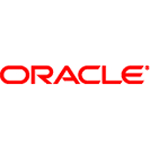
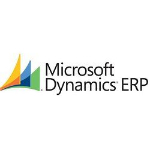
.png)

